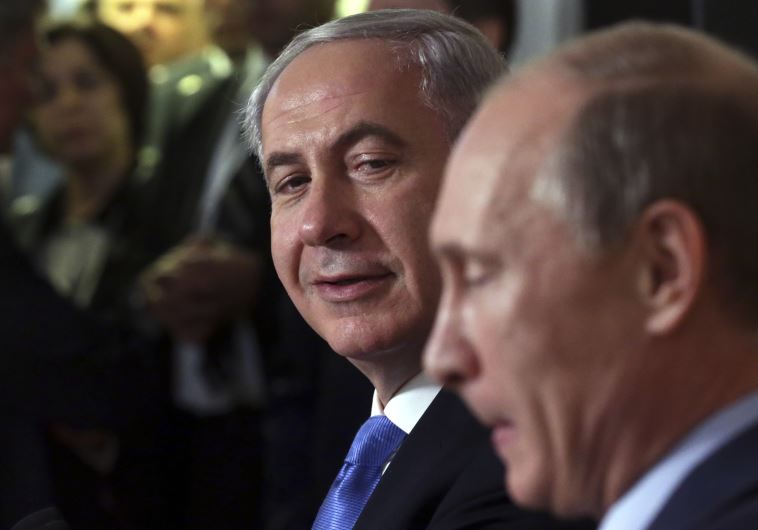Russia: Invite for Israeli-Palestinian meeting in Moscow still open
No date has been given for the meeting, which Russia's Foreign Ministry first announced in September.
 Russian President Vladimir Putin (R) and Prime Minister Benjamin Netanyahu attend a news conference in SochiUpdated:
Russian President Vladimir Putin (R) and Prime Minister Benjamin Netanyahu attend a news conference in SochiUpdated: